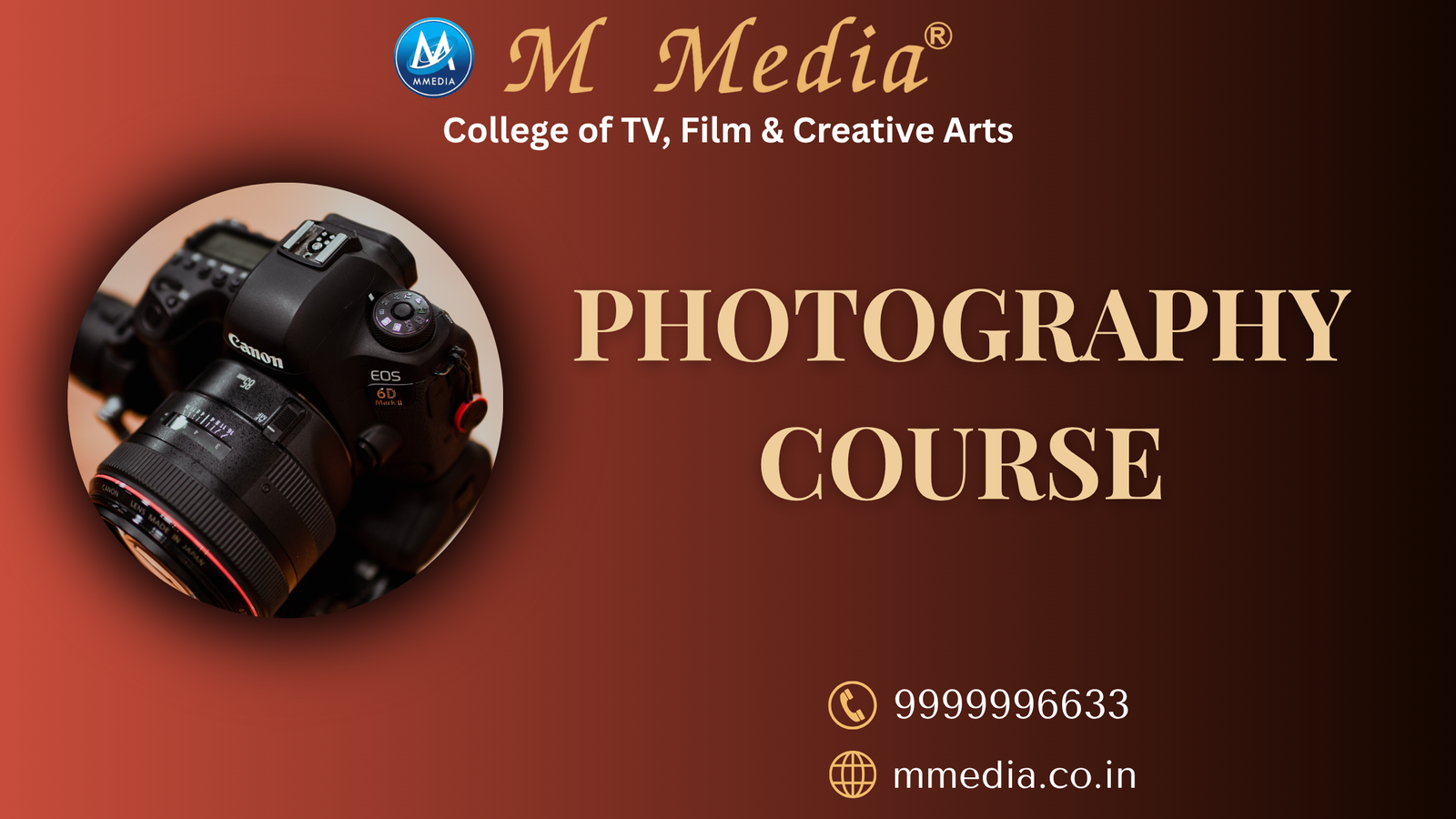
Photography is more than just clicking pictures—it’s about capturing moments, telling stories, expressing emotions, and presenting a unique perspective of the world. A photography course is the perfect starting point for anyone passionate about this powerful art form, whether you’re a hobbyist looking to improve your skills or an aspiring professional aiming to make a career in photography.
The best photography courses are designed to take students on a complete journey from the basics to advanced techniques. They start by teaching how cameras work—covering settings like shutter speed, aperture, ISO, and white balance—before moving into deeper concepts like composition, lighting, and color theory. These courses ensure that learners not only understand how to use a camera but also how to create powerful and visually striking images.
What makes a photography course truly valuable is its hands-on approach. Rather than just learning theory, students are encouraged to practice in real-time—through indoor and outdoor shoots, studio sessions, and creative assignments. Whether it’s portrait photography, landscape, wildlife, fashion, product, street, or event photography, the course exposes students to various styles and genres so they can find their own area of interest and develop a personal style.
A professional photography course also focuses on helping students build a strong portfolio. This is especially important for those planning to enter the industry as freelancers or full-time photographers. A good portfolio acts as your visual resume and shows potential clients or employers what you can do. Throughout the course, students receive feedback from experienced mentors and professionals, helping them refine their skills and improve with every shot.n addition to technical and creative training, many photography courses include modules on post-processing and editing using tools like Adobe Photoshop and Lightroom. These skills are crucial in today’s digital world, where editing can enhance the quality and impact of an image. Students learn how to manage colors, correct lighting, remove flaws, and bring out the best in their photographs.
One of the major benefits of joining a professional course is the chance to connect with a community of fellow photographers, instructors, and industry professionals. This network can lead to collaborations, internships, job offers, and freelance gigs. Many institutions also help students exhibit their work, participate in photo contests, and attend workshops or photography tours for real-time learning experiences.
IMPORTANCE:
1. Building a Strong Foundation
A photography course teaches you the basic technical elements of photography—such as ISO, shutter speed, aperture, white balance, and depth of field. These are the building blocks that determine how an image looks. Without understanding these fundamentals, even the most expensive camera won’t produce high-quality results. A course helps you move from “automatic mode” to full creative control.
2. Learning Composition and Visual Storytelling
Photography is a visual language. A good photo tells a story, captures emotion, or expresses an idea. A course teaches you how to frame shots, balance elements, use leading lines, manage background distractions, and apply the rule of thirds. These skills help you create images that are not just technically correct but also emotionally engaging and aesthetically pleasing.
3. Developing a Personal Style
As you practice and explore different genres—like portrait, landscape, street, product, wildlife, or fashion photography—a photography course helps you discover what you truly enjoy. More importantly, it guides you in developing your own unique visual style, which is essential if you plan to stand out as a creative or professional photographer.
4. Hands-On Practice and Real-World Experience
Many courses include practical assignments, studio sessions, outdoor shoots, and real-world scenarios. This hands-on approach helps build confidence, improve decision-making under different lighting or environmental conditions, and develop a quick eye for capturing the perfect moment. Experience is one of the most valuable things a course provides.
5. Learning Editing and Post-Processing
In today’s digital photography world, editing is a vital part of the process. A photography course usually includes training in tools like Adobe Photoshop, Lightroom, or mobile editing apps. You learn how to enhance colors, adjust exposure, crop creatively, remove flaws, and bring your vision to life. Editing can turn a good photo into a great one.
6. Career Opportunities and Professional Growth
For those interested in making photography a career, a formal course gives you a strong head start. Whether you want to become a freelance photographer, work for media outlets, shoot weddings or products, or get into fashion or travel photography—a professional course teaches you both the creative and business sides of the industry. It also helps you build a portfolio, which is essential when applying for jobs or clients.
7. Constructive Feedback and Mentorship
One of the biggest advantages of a course is the feedback you receive from instructors and peers. Mentors can point out mistakes, suggest improvements, and help you refine your technique and vision. This kind of guidance accelerates your growth and helps you avoid common errors that self-learners often struggle with.
8. Boosting Confidence and Motivation
Learning within a structured environment gives you a sense of progress. Completing projects, seeing your work improve, and gaining appreciation from teachers and fellow learners can be incredibly motivating. This builds your confidence and keeps you inspired to take on new challenges and keep pushing your limits.
9. Keeping Up with Trends and Technology
The photography world is always evolving—with new camera gear, editing software, and creative trends. A good course keeps you updated with the latest developments, including smartphone photography, drone photography, mirrorless cameras, and even AI-powered editing tools. This ensures your skills remain relevant in the changing market.
10. Community and Networking
Photography courses often create a community of like-minded individuals who share your passion. Networking with fellow learners, instructors, and guest professionals can lead to collaborations, exposure opportunities, and even future jobs or clients.
BENEFITS:
1. Learn Step by Step
A photography course teaches you everything in the right order, from basics to advanced, so you don’t feel lost or confused.
2. Find Your Style
You’ll learn what kind of photography you enjoy most—like portraits, nature, or fashion—and build your own unique style.
3. Get Better with Expert Help
Teachers in the course guide you and give feedback on your photos, so you improve faster and avoid common mistakes.
4. Take Smart Photos
You’ll learn how to plan your shots and use lighting and angles to make every picture look great—not just click randomly.
5. Understand the Camera & Storytelling
You’ll not only learn camera settings, but also how to tell a story or show emotions through your photos.
6. Learn How to Earn
Many courses teach how to make money with photography—how to find clients, set prices, and promote your work.
7. Make a Portfolio
You’ll create a collection of your best photos that you can show to clients, post online, or use to apply for jobs.
8. Get Real Opportunities
Some courses give chances to join contests, exhibitions, or real projects—great for learning and getting noticed.
9. Stay Motivated
Being around teachers and other students keeps you inspired and helps you stay focused on your goals.
10. Turn Your Passion into a Career
If you love photography, a course can help you turn that passion into a full-time or part-time job you enjoy.


